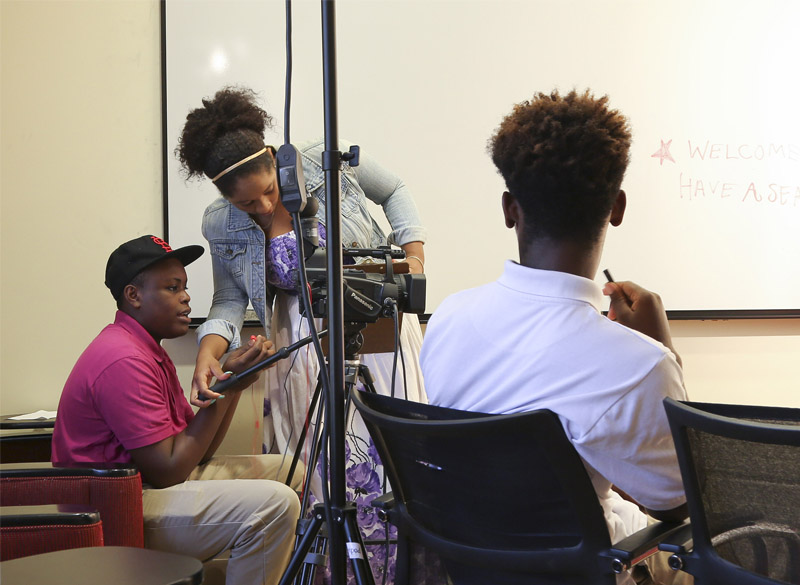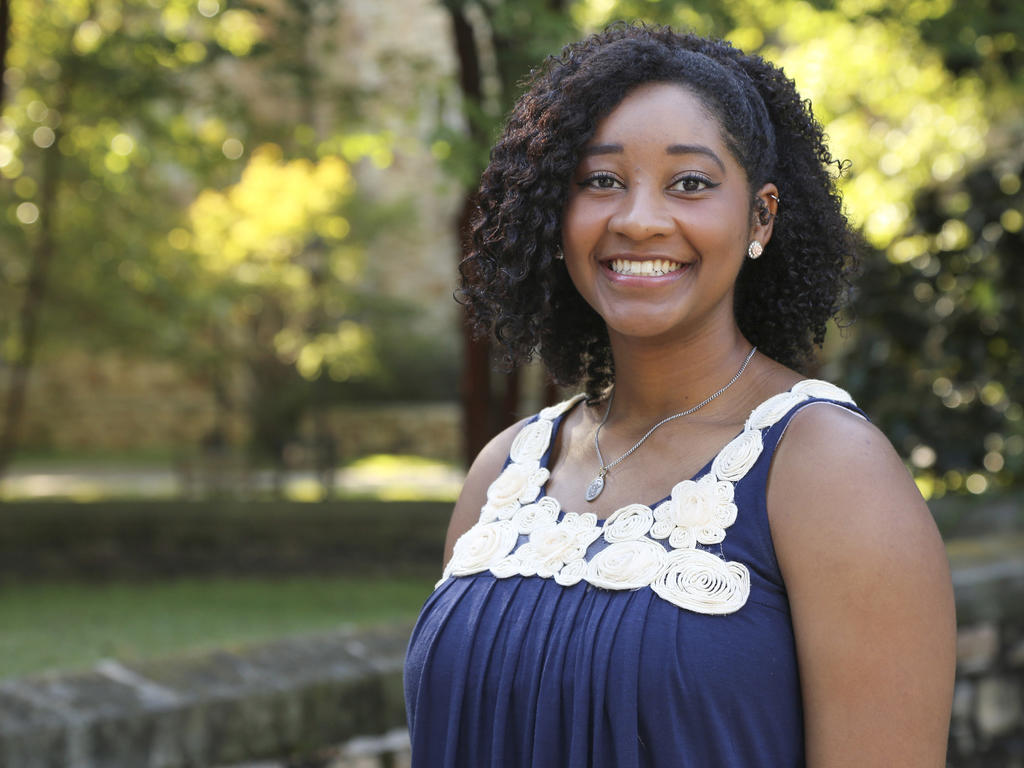In 2007, Rhodes College launched Crossroads to Freedom, a digital archive that features primary resources about Memphis’ history. Specifically, the program focuses on documenting and preserving the history and stories of Memphis neighborhoods, making accessible a wealth of narratives often unsung in broader historiographical efforts.
To accomplish the archive’s goals, in 2013 Rhodes established the Neighborhood History Program in partnership with local organizations First Works of Memphis, the Corners of Highland Heights Shalom Zone, the South Memphis Shalom Zone, KnowledgeQuest, and the Center for Transforming Communities. The program, which invites long-time residents of the Highland Heights and South Memphis areas to share their stories, is an example of how Rhodes and the community can team up to make a difference.
The Neighborhood History Program, under the direction of Suzanne Bonefas, director of special projects, puts Rhodes students, local high-school students, and an older generation of Memphians into direct dialog with one another. Rhodes serves as a kind of literal “common ground,” where the high-school interns are mentored and trained and where the interviews are held. These interviews include questions both broad and specific, from the Civil Rights movement of the 1960s to general aspects of the interviewees’ work and home lives. The Crossroads to Freedom video archive, which houses the interviews, can be found here.
Gabby Gafford ‘18, a fellow with Crossroads to Freedom, works closely with the high-school interns, who are selected from the neighborhoods they document. The  interns are in charge of filming, conducting, and then archiving the interviews. “We guide them, teach them how to set up, how to build rapport, how to maintain the relationships they make with the interviewees, and how to turn the oral interviews into digitally archived pieces,” Gafford explains. “I think the overall goal of the program is to connect the kids to their communities to enrich them; let them know that their communities are important.”
interns are in charge of filming, conducting, and then archiving the interviews. “We guide them, teach them how to set up, how to build rapport, how to maintain the relationships they make with the interviewees, and how to turn the oral interviews into digitally archived pieces,” Gafford explains. “I think the overall goal of the program is to connect the kids to their communities to enrich them; let them know that their communities are important.”
The Neighborhood History Program is set up to be a long-lasting and powerful resource for Memphis history. Promoting inter-generational, inter-racial, and inter-class dialog, the program makes available first-hand accounts from people who have seen and lived through historical events. These include black Memphians who marched for freedom in the 1960s, white Memphians who lived in interracial neighborhoods before and shortly after desegregation, and others from various viewpoints and backgrounds, both young and old.
“The community provides the oral histories, and the opportunities to show these kids how these communities were and how they can be,” Gafford concludes. “I love Crossroads to Freedom. It’s a great program that has enriched my life and the lives of the kids involved.”
By Kenneth Piper ‘17
